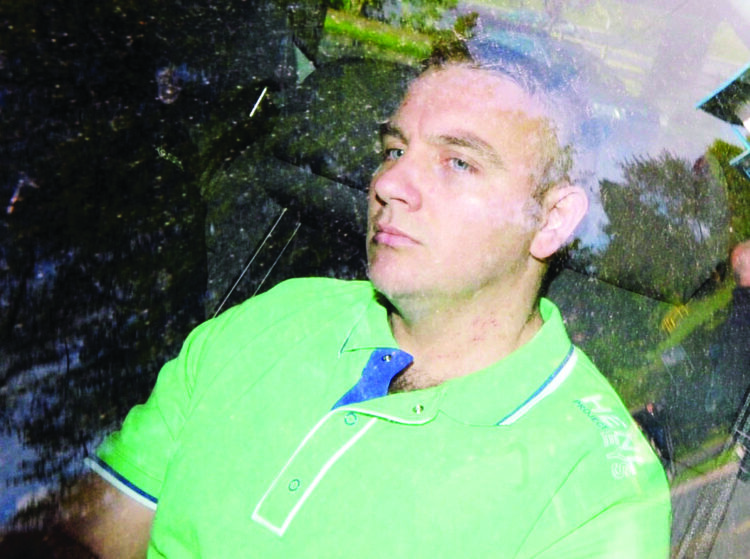By Tony O’Reilly-
The leniency of a sentence handed down to a man whose car was connected to a dissident bomb attack on a police officer has sparked controversy.
Gavin Coyle,(pictured) hailing from Mullaghmore Drive in Omagh, f was sentenced at Belfast Magistrate’s Court to a mere four years in prison for his involvement in a car bomb attack near Castlederg in May 2008.
Two years of the six-year sentence will be spent on licence.
The attack left a police officer with “permanent disfiguring injuries,” and the gravity of the crime has prompted public outcry.
The officer underwent multiple surgeries, including plastic surgery, to address the deep puncture wounds, lacerations, and injuries to the muscles of his leg.
Beyond the physical trauma, the officer’s mental health suffered, and his career took a downward spiral.
Judge Patricia Smyth, who presided over the case, described Coyle as someone “committed to acts of terrorism.” While Coyle received a six-year sentence, two years of it will be spent on license, further diminishing the perceived severity of his punishment.
The sentence handed down to Gavin Coyle has prompted strong reactions from political leaders and advocates for justice. TUV leader Jim Allister swiftly called on the Director of Public Prosecutions to refer the sentence to the Court of Appeal, citing its unduly lenient nature.
According to Allister, the sentence fails to align with the severity of the crime, which involved an intentional attack causing permanent disfigurement and aimed at taking the life of a police officer.
“To see an avowed terrorist, who admitted IRA membership and who has previous terrorist convictions, sentenced to a mere four years for this murderous attack, which caused permanent disfiguring injuries and which involved the intent to kill, is pathetic,” he said.
“Our courts must get real and hand out sentences to both fit the crime and provide strong deterrence to others. This sentence falls woefully short of what is required.”
UUP leader Doug Beattie echoed these sentiments, emphasizing the need for an appeal and stating his intention to communicate this to the DPP.
The collective sentiment among these leaders and the public at large is that justice has not been adequately served.
Judges are bound by strict sentencing guidelines, which demand a delicate balance between mitigating and aggravating circumstances.
Mitigating factors that can lead to reduced sentences include early guilty pleas, cooperation with police, and expressions of remorse. On the other hand, aggravating factors, such as intent and the use of excessive violence, can lead to harsher penalties.
Coyle pleaded guilty to being a member of the IRA between May 2007 and May 2008.
Additionally, he admitted to providing property (his Audi A4) for the purpose of terrorism on May 11, 2008. While he acknowledged that his car would be used for terrorism, he claimed ignorance about the precise nature of the planned attack.
The attack in question involved a car bomb placed under the serving constable’s vehicle, which exploded as he was en route to a night shift.
In a poignant statement, the officer revealed the emotional toll, saying, “Omagh was the place I called home, but I no longer feel safe there.” His moving account underscores the enduring scars of the attack, not only on him but on his family and loved ones as well.
. The four-year prison term, which ultimately amounts to two years incarceration has been met with disbelief and disappointment.
The Attorney General’s role in reviewing sentences is crucial in ensuring that justice is served, both for victims and society as a whole. As this case exemplifies, the need for consistency in sentencing, especially in cases involving acts of terrorism and violence, cannot be overstated.
The question at the heart of this matter is whether the sentence aligns with the gravity of the crime and the lasting impact it has had on the victim and society.
The Attorney General’s consideration of this case will determine whether justice prevails and whether the sentence is commensurate with the harm inflicted. In a case marked by its shocking nature, the pursuit of justice remains paramount.




